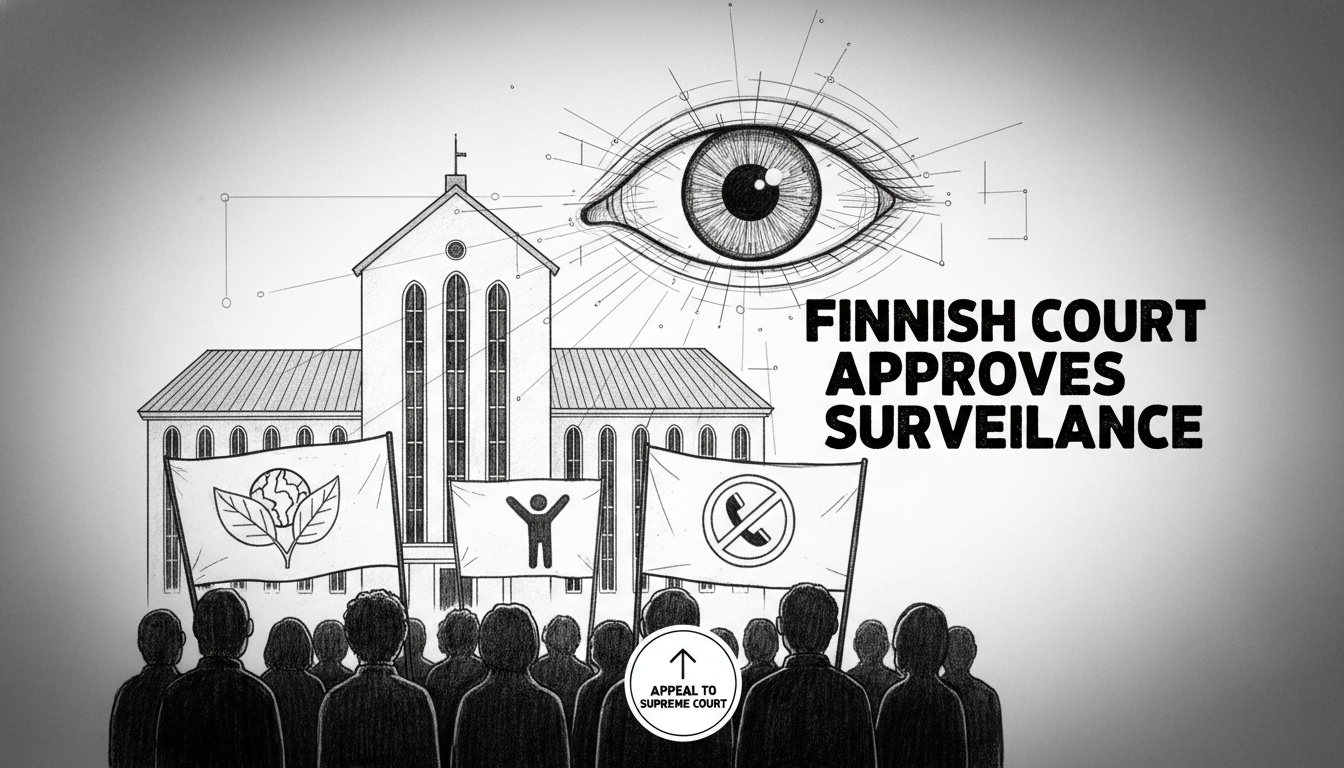A Finnish appeals court has ruled that police surveillance of environmental activists' phone communications was justified during a major rally event. The decision allows authorities to monitor climate protesters' mobile data without their knowledge when serious crimes are suspected.
Turun Court of Appeal determined police had sufficient grounds to suspect Extinction Rebellion activists might commit aggravated damage during the Jyväskylä rally. The court accepted surveillance of three protesters' phone location data and call records. Police obtained the surveillance warrants through district court approval before the summer event.
Activist Kaapo Riikonen, one of those monitored, challenged the surveillance in court. He argued the police suspicions were exaggerated. Riikonen expressed concern this ruling could enable broader monitoring of all climate activists. His legal team plans to appeal to Finland's Supreme Court.
Finnish law permits such surveillance when individuals are reasonably suspected of crimes carrying maximum four-year sentences. Police cited potential aggravated damage to rally vehicles and helicopters as justification. The court noted rally events contain valuable assets requiring protection.
Legal representative Tuuli Talvinko expressed confusion about the ruling. She questioned why the court didn't address what evidence police must provide for surveillance warrants. Talvinko noted the decision seemed influenced by Extinction Rebellion's increased activity rather than individual actions.
The court emphasized this represents preventive police work aiming to stop crimes before they happen. Judges stated phone surveillance intrudes less on privacy than other covert methods. They argued previous non-involvement in crimes doesn't prevent future surveillance.
This case highlights tensions between protest rights and public safety in Finland. Climate activists increasingly target high-profile events to draw attention to environmental issues. The ruling establishes precedent for preemptive surveillance of protest groups.
Police documentation revealed they had incorrectly described previous protests in surveillance applications. Some described incidents never reached prosecutors because police deemed them minor offenses. The appeals court still found sufficient grounds for surveillance.
Finnish privacy advocates worry this could expand surveillance of legitimate protest activities. The balance between security and civil liberties remains contested. Similar debates occur across Nordic countries facing increased climate activism.
The Supreme Court appeal will test how Finland reconciles protest rights with event security. Its decision could influence police approaches to environmental demonstrations throughout the region. International observers watch how Nordic democracies handle this challenge.
Climate groups continue planning demonstrations despite increased surveillance risks. The movement shows no signs of slowing its campaign for stronger environmental policies. This legal battle represents just one front in the broader conflict over protest methods and government response.

